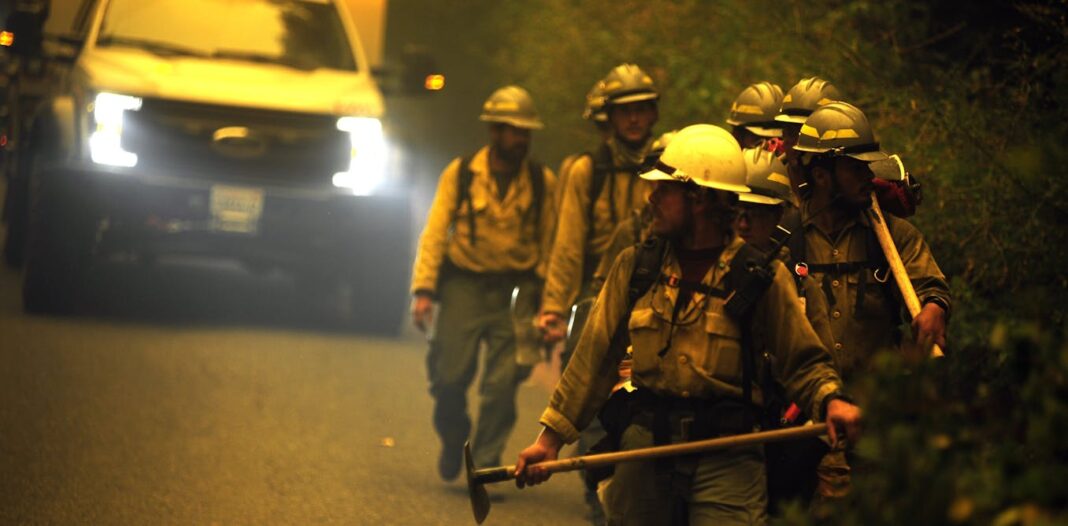Wildland Firefighters Face Uncertain Future
Pay and Benefits Uncertainty
As cool weather arrives and the number of U.S. wildfires declines, wildland firefighters who have spent months working in the heat and smoke are able to take a much-needed break. However, for many of them, the stress of the job isn’t going away. Continued uncertainty regarding federal pay and benefits, coupled with mental health risks and seasonal financial strain, make this a precarious time for wildland firefighters.
Low Starting Pay and High Overtime
Starting pay for wildland firefighters is as low as $15 an hour, and many work an average of over 600 hours of overtime annually to pay their bills. This is equivalent to working 15 additional 40-hour weeks per year. With starting pay so low, many wildland firefighters are forced to work long hours just to make ends meet.
High Risk of Injury and Death
Working in wildland firefighting is an unpredictable and often emotionally challenging job. Wildland firefighters work in tight-knit crews that depend on one another for physical safety, and they are the front-line defense for homes and communities threatened by fire. On average, about 17 U.S. wildland firefighters are killed in the line of duty each year.
Mental Health Concerns
Wildland firefighters and wildland fire dispatchers report widespread struggles with mental health, including high rates of depression, anxiety, post-traumatic stress disorder, and suicidal thoughts or ideations. One in three wildland fire dispatchers said they had had suicidal thoughts or ideations, and half know a wildland firefighter who has died by suicide.
Pay Policies Encourage Overwork and Risky Choices
The federal wildland fire system also incentivizes overworking and risky behaviors that put firefighters at greater risk of physical harm. With starting pay so low, many wildland firefighters end up working extensive overtime to pay their bills, leaving them vulnerable to costly errors that could impede their safety.
Federal Hiring System Adds Stress
A career in wildland firefighting can be a tough sell – long hours, months away from home, grueling physical labor, health and safety hazards, and low starting pay. Surveys of wildland firefighters’ spouses and partners found high levels of family conflict and poor work-life balance. Most wildland firefighters said they were unable to attend important family and life events during fire season, and most wildland fire dispatchers reported that they did not spend adequate time outdoors or with family.
Conclusion
Wildland firefighters are facing a precarious future. The uncertainty surrounding their pay and benefits, combined with the mental health risks and seasonal financial strain, make this a challenging time for these brave individuals. It is crucial that policymakers take action to improve their health care, pay, and the organizational structure of the wildland fire service to retain experienced firefighters and ensure the safety of our nation’s fire-prone communities.
Frequently Asked Questions
Q: Why are wildland firefighters facing uncertainty in their pay and benefits?
A: The temporary retention bonus approved in 2021 has yet to be codified, and many wildland firefighters are waiting to see if it will be extended or replaced.
Q: How many wildland firefighters are killed in the line of duty each year?
A: On average, about 17 U.S. wildland firefighters are killed in the line of duty each year.
Q: What are the mental health concerns facing wildland firefighters?
A: Wildland firefighters and wildland fire dispatchers report widespread struggles with depression, anxiety, post-traumatic stress disorder, and suicidal thoughts or ideations.
Q: Why do wildland firefighters have to work so much overtime?
A: Starting pay for wildland firefighters is as low as $15 an hour, and many work an average of over 600 hours of overtime annually to pay their bills.





